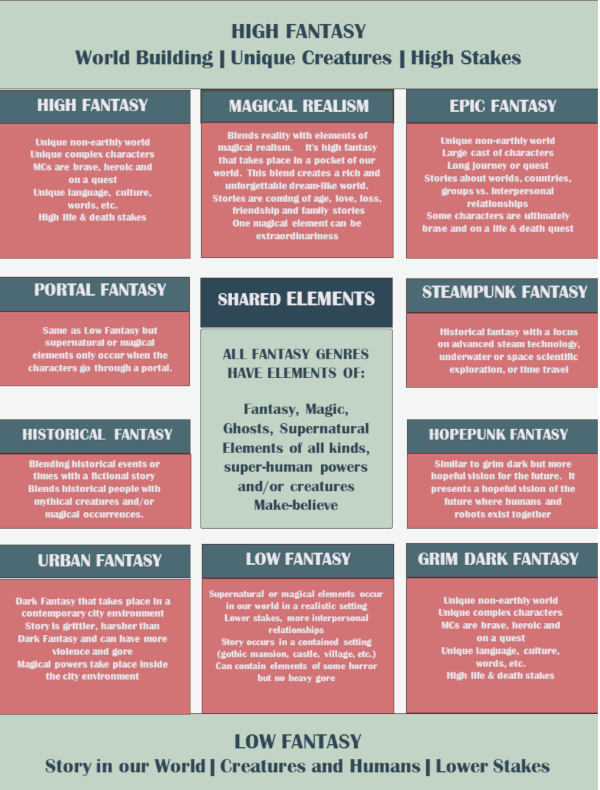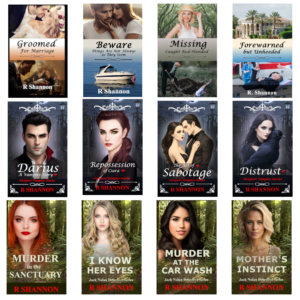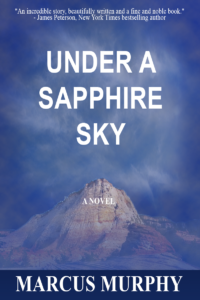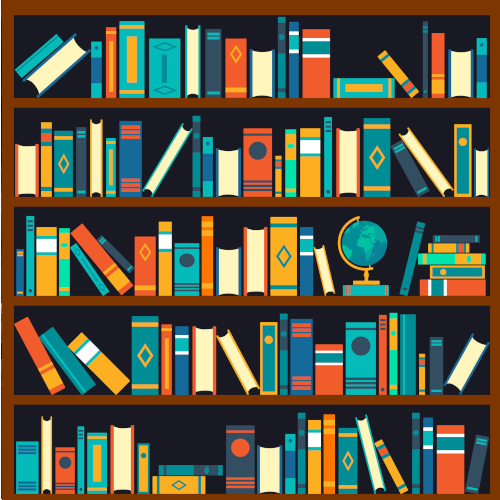 In our last installment, we covered the top three book genres: High Fantasy, Epic Fantasy and Low Fantasy. Now we will drill down into the Fantasy sub-genre categories.
In our last installment, we covered the top three book genres: High Fantasy, Epic Fantasy and Low Fantasy. Now we will drill down into the Fantasy sub-genre categories.
If you're a reader, knowing all the categories and what makes them different from one another will help you find the very books you love to read. As an author, it will help you find the best genre to position your book in the marketplace.
And if you are looking to 'write to market' as some authors do, knowing the expectations and subtle differences between the various genres can help you zero in on what expectations your readership will have.
💥💥 Urban Fantasy 💥💥
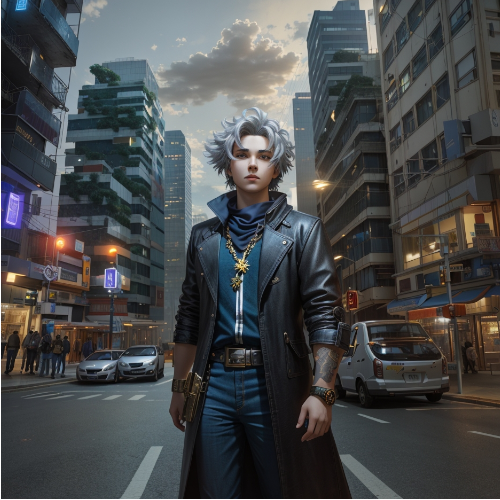
Urban Fantasy is similar to Low Fantasy with one or two exceptions. One exception is the setting. The story takes place in our world and in a modern city setting. It can be at another time in the past or in the future, but it takes place on Earth in a city.
Urban Fantasy blends the mundane with the magical, setting fantastical elements within a modern urban environment. It often explores the hidden world of supernatural beings coexisting with humans.
The other difference between low fantasy and urban fantasy is that the environment and characters are grittier, edgier and tougher. Low Fantasy takes place in secluded environments like castles, or rural or suburban environments so the world can be almost fairytale like. Urban fantasy takes place in the bustle and grit of a city.
What distinguishes Urban Fantasy from Low Fantasy is there is a grittier environment and there can be violence. The characters are more human, grittier and they can be morally ambiguous.
Three books that are examples of Urban Fantasy are:
- The Dresden Files by Jim Butcher: This series is a modern classic of Urban Fantasy, featuring a private investigator with magical abilities in a contemporary setting.
- Anita Blake: Vampire Hunter by Laurell K. Hamilton: A popular series blending romance, horror, and fantasy in a modern urban setting.
- American Gods by Neil Gaiman: While not strictly Urban Fantasy, it explores the coexistence of old and new gods in modern America, blurring the lines between myth and reality.
💥💥 Dark Fantasy 💥💥
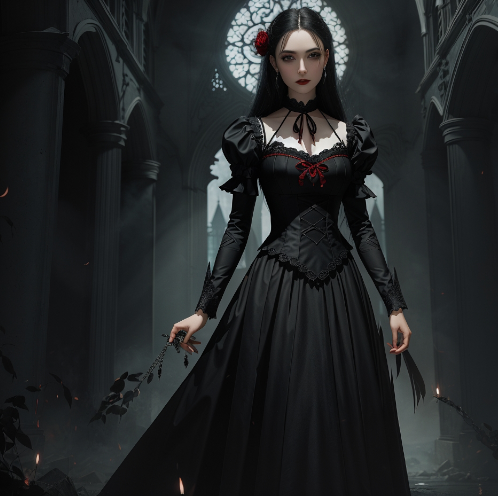
Dark Fantasy is a subgenre of the Low fantasy genre. Dark Fantasy blends elements of fantasy with horror, with more of an emphasis on the horror aspects. Think Cinderella vs. Dracula. This genre explores themes of darkness, supernatural elements such as magic, ghosts, vampires, werewolves and other fantastical creatures who enter our world.
There is also a focus on the psychological, how this is affecting one or more characters in the story. Due to the emphasis on horror, there is an underlying sense of fear, unease and dread running through the story. These stories tend to focus on the darker aspects of the human psyche; think accidental manslaughter vs. Jack the Ripper.
Characters often face internal struggles, psychological struggles, madness, or obsession. Magic, demons, ghosts, or otherworldly creatures are common in this genre.
Ambiguous morality: The lines between good and evil can often be blurred, although not always. Sometimes good wins out, but in dark fantasy, you can't count on it.
These stories also takes place in our world, but unlike urban fantasy, they usually take place in secluded environments like castles, forests, rural or isolated settings.
Three examples of Dark Fantasy:
- Dracula by Bram Stoker: A quintessential work of Gothic horror, Dracula blends elements of horror and romance, creating a dark and atmospheric tale.
- The Picture of Dorian Gray by Oscar Wilde: While often classified as a psychological horror novel, it incorporates supernatural elements and explores the darker aspects of human nature, aligning with Dark Fantasy themes.
- The Shining by Stephen King: Though primarily a horror novel, The Shining delves into psychological horror and explores the supernatural, making it a strong example of Dark Fantasy.
💥💥 Grim Dark Fantasy 💥💥
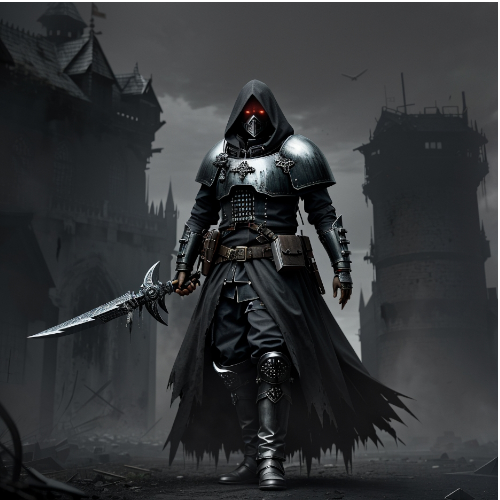
Grim Dark Fantasy is a rather new genre and it is a sub-genre of Dark Fantasy. What distinguishes a grim dark fantasy from a garden-variety dark fantasy is that the world it takes place in is bleak, often violent and brutal. There can be gore alongside the horror in this genre too.
This genre always focuses on morally-ambiguous characters, anti-heroes and it can be an environment where evil triumphs. There's no promise of a happy ending. Grim Dark fantasy also has a cynical voice running through the narrative, a hopelessness, even despair.
Three books that fall into this category are:
- The Black Company by Glen Cook: Often cited as a foundational work in the Grimdark genre, this series features anti-heroes, morally ambiguous characters, and a gritty, cynical world.
- A Song of Ice and Fire by George R.R. Martin: Though not exclusively Grimdark, Martin's series showcases many Grimdark elements with its morally complex characters, brutal violence, and bleak worldview.
- The First Law trilogy by Joe Abercrombie: A modern classic of Grimdark, this series is renowned for its anti-heroes, dark humor, and unflinching portrayal of war and its consequences.
